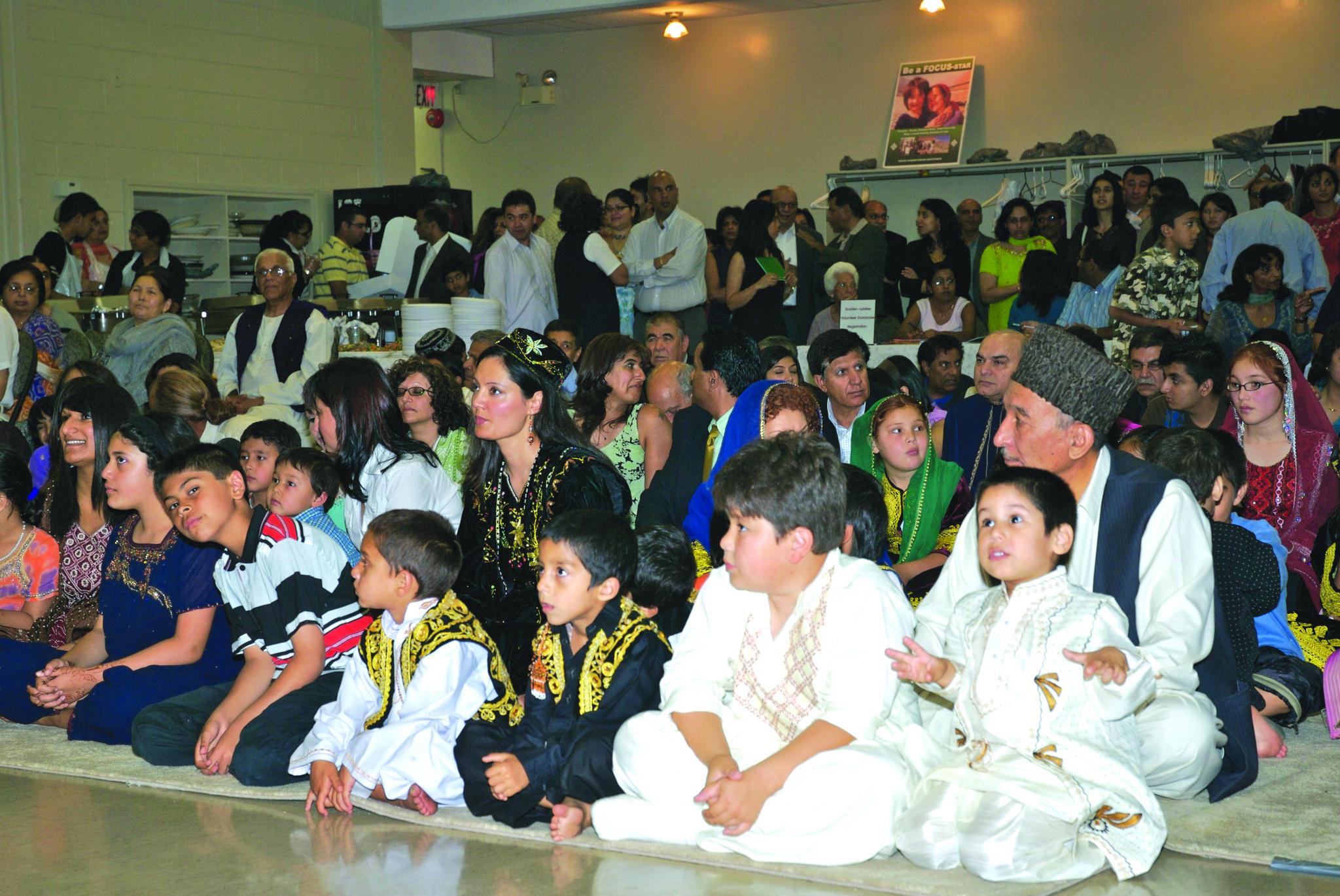

A Changing Landscape: Immigrant Ismaili Families in the Canadian Jamat
Little by little, the budding community in Canada began to grow into a strong and supportive one.
While the experiences of immigrant Ismaili families have changed significantly over time, each wave has presented unique circumstances and shared challenges. The initial migrants came in the 1960s and were young to middle-aged adults, most of whom were students pursuing university degrees, with a few arriving as business-people. The first major wave of immigrants came in 1972, during Idi Amin’s expulsion of South Asians from Uganda. Salima Versi, who completed her Master’s thesis on the subject of the East African immigration of the 1970s, explains that research generally indicates that the younger the age of migration, the easier the acculturative process—the ability to get used to a new culture. This appears to have been true for Ismaili immigrants in the 1970s, as the average age of migration was relatively low. Moreover, because the majority of the migrants spoke English fluently, they were able to access health care and other social services, and find employment.
Though many immigrants arrived in Canada with little in material possessions to start their new lives, their resilience, hard work and adaptability served them well in making Canada their home. During Versi’s research, many of her interview participants spoke of more difficult experiences, including finding jobs, housing, child care, etc., as well as experiences of discrimination. Many worked multiple jobs, had to relinquish their professional degrees in order to feed their families through other work, and faced harsh environmental conditions that differed vastly from that of their homelands. However, these incidents of the migration experience were often well buffered by the Jamat and the strength of the support system within it. Having arrived here, often in fragmented family units, many found the lack of familial bonds, and lack of elders within the community difficult. Having fewer elders within the Jamat meant fewer opportunities for older migrants to connect. However, the truncated age range of the Jamat allowed for more targeted programming, such as sports tournaments or other cultural events, to be implemented, and were widely attended. Such events helped to buffer the impact of the migration and facilitated the development of the community. Little by little, the budding community in Canada began to grow into a strong and supportive one.
The vastly different economic climate over the past twenty years has brought many changes to the immigrant experiences of Ismailis who arrived more recently. In comparison to the East African migration of the 1970s, families that have joined the Canadian Jamat more recently have faced a significantly more challenging acculturation process. However, later arriving immigrants have arrived into a community that has a successful history of forming support systems in a wide variety of arenas, and could be catered to specific cultural needs. From English tutoring to financial help, internal and external programs have been created to ease the transition into a new culture and country.
One notable program that the Canadian Jamat has fostered, and that assists new immigrants among other groups, is the Community Empowerment Program (CEP). As an initiative of the Social Welfare Board, with the collaborative support of other boards, the CEP model organizes client issues by working with the client to define three to four key priorities that they wish to be assisted with. The objective of this program is to move the families up a level in their income by empowering, guiding and supporting them through customized services delivered by an institutional response with an emphasis on relevant education, training, skills upgrading, positive and healthy lifestyle choices as well as sound money management skills. It uses a much more hands on approach, utilizing trained mentors to assist the family. Furthermore, the program provides a confidential, culturally sensitive service that has been developed to help motivate families and individuals to work towards improving the quality of their lives and creating a brighter future for their children.
The strength and continued growth of such initiatives encourages confidence for the future of immigrant Ismaili families to Canada. Canada has often been called a beacon of pluralism, and the establishment of the Delegation of the Ismaili Imamat, the Global Centre for Pluralism and the Wynford Drive projects serve as testament to the Jamat’s success in creating a lasting presence in Canada. Thanks to their strength in not only adjusting to a vastly different culture, but also the ability to absorb diversity both in ideas and in lifestyle through resilience, hard work, and continued faith, the Canadian Ismaili diaspora experience speaks to overcoming and thriving in circumstances that will allow generations after to reap the rewards.
Photo: Almin Surani




